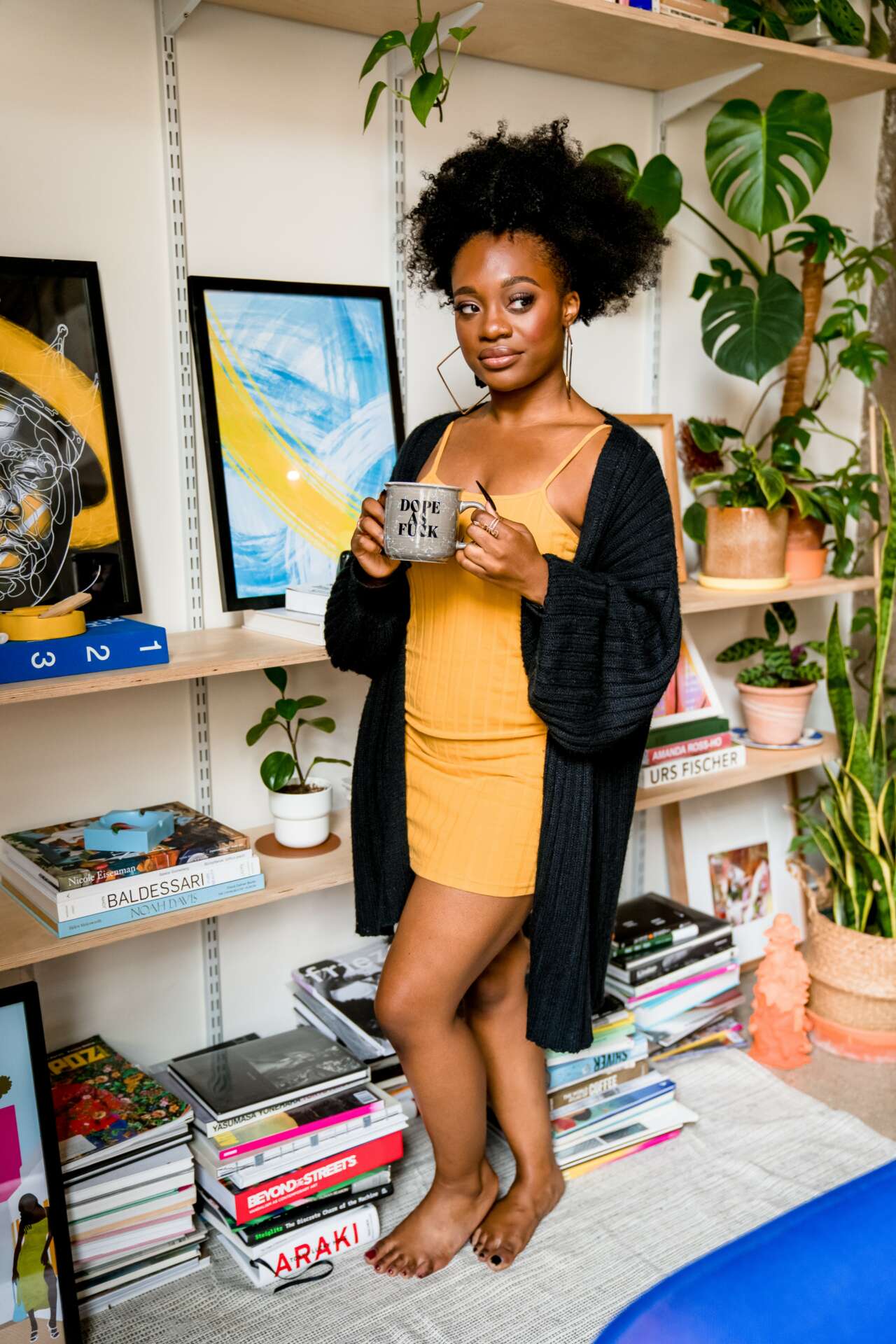Alright – so today we’ve got the honor of introducing you to Morgan Sumner. We think you’ll enjoy our conversation, we’ve shared it below.
Morgan, thanks for joining us, excited to have you contributing your stories and insights. So, naming is such a challenge. How did you come up with the name of your brand?
My favorite question! Poché Design Studio has some history. Our name means so much to us – we really dug to name ourselves Tobi and I had done the work of defining our company values, defining audience and client profiles, and setting up the bones of our company. But we didn’t have a name. We took on our first-ever client—without a name. We knew exactly the lanes that we wanted to occupy, but we had no idea what we wanted to be called. We had tight parameters: it should reference our backgrounds in architecture, but it should also be rooted in our identities. We wanted it to be common enough, but not so ordinary; we’re just another drop in the ocean. It should be short, it should be relevant, but timeless, and… and… and…. After circling the thought for several weeks, we were frustrated, so I finally did the thing I didn’t want to do: read the dictionary. The architecture dictionary, that is. I skimmed every page and every definition and sent pictures of the best options to Tobi. We brainstormed ideas under the pressure-less theme of “the rebranding party will be lit” in case we ever needed to redefine ourselves. Finally, we landed on “poché”. Part of this definition says “poché refers to a graphic treatment applied to the solid portions in orthographic drawings in order to heighten their spatial legibility… they are more often than not shaded or filled-in with a dark tone or solid black.” I think it’s beautiful that “poetic” and “porosity” are the two definitions that follow. For us, Poché defines our most central value: Blackness. We saw a deficit in our fields by people who looked like us, and thereby a deficit in our input in design/ed space. It’s how we found each other and where this story starts as the only two Black women to graduate with M.Arch’s in our respective years; we knew about each other immediately and have been close since. Our goal is to build a table that all of our talented friends can bring their chairs to too. We’re proud that we can see a field not traditionally used to hearing our voices and tell it to hold on while we build a platform to scream our and our clients’, stories from. Poché is as bold as it is soft when you say it. It’s got the Beyoncé “E”. If you’re in the architecture community, we don’t have to explain it. If you’re not, we’ll happily tell you this story. I wanted to name us “Black,” and while Tobi quickly vetoed that, she somehow later agreed to it, a name we’re probably never changing.
My architecture dictionary from undergrad: Archispeak by Tom Porter, page 144 (just ignore me, I was delerious)
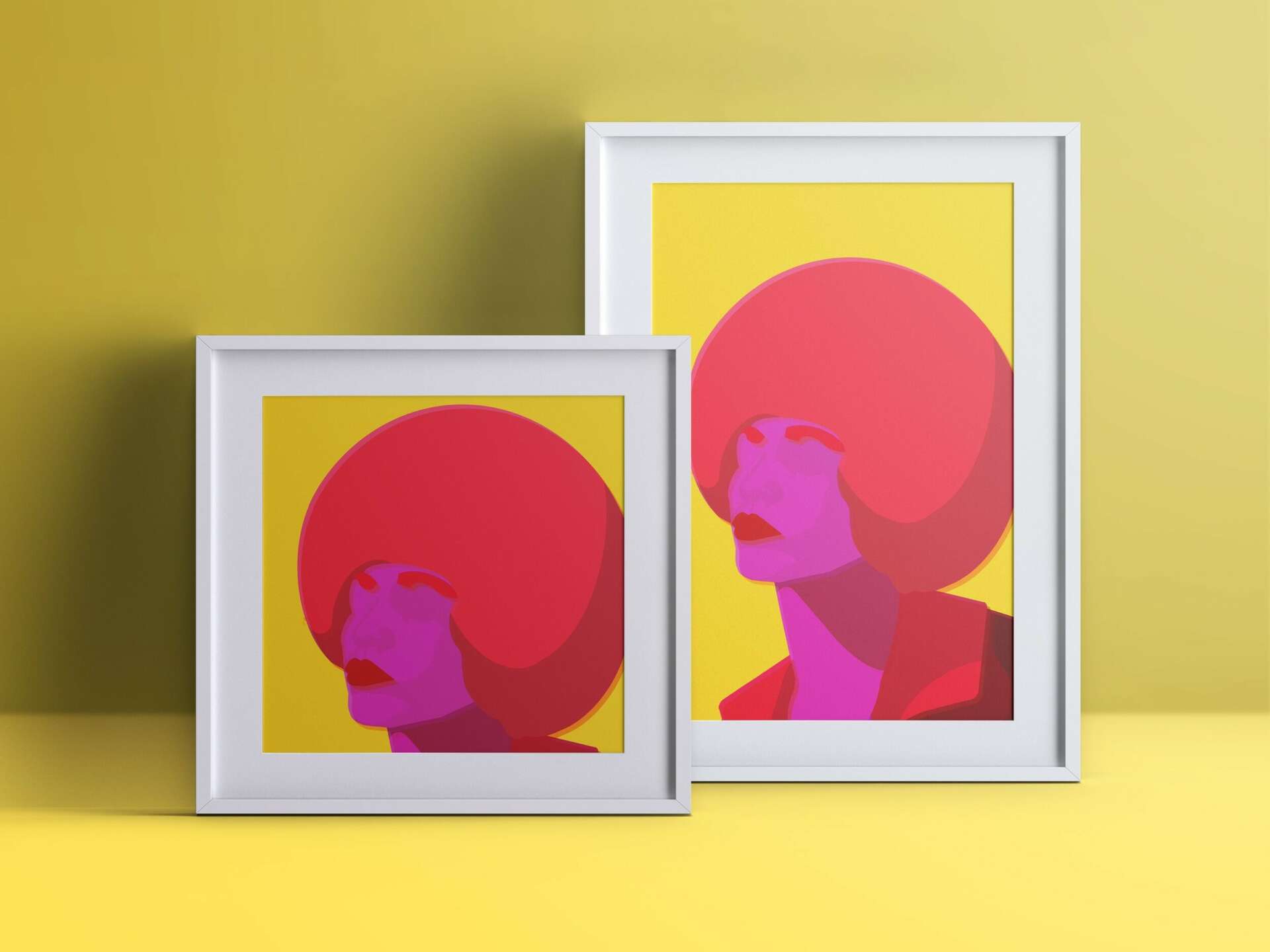
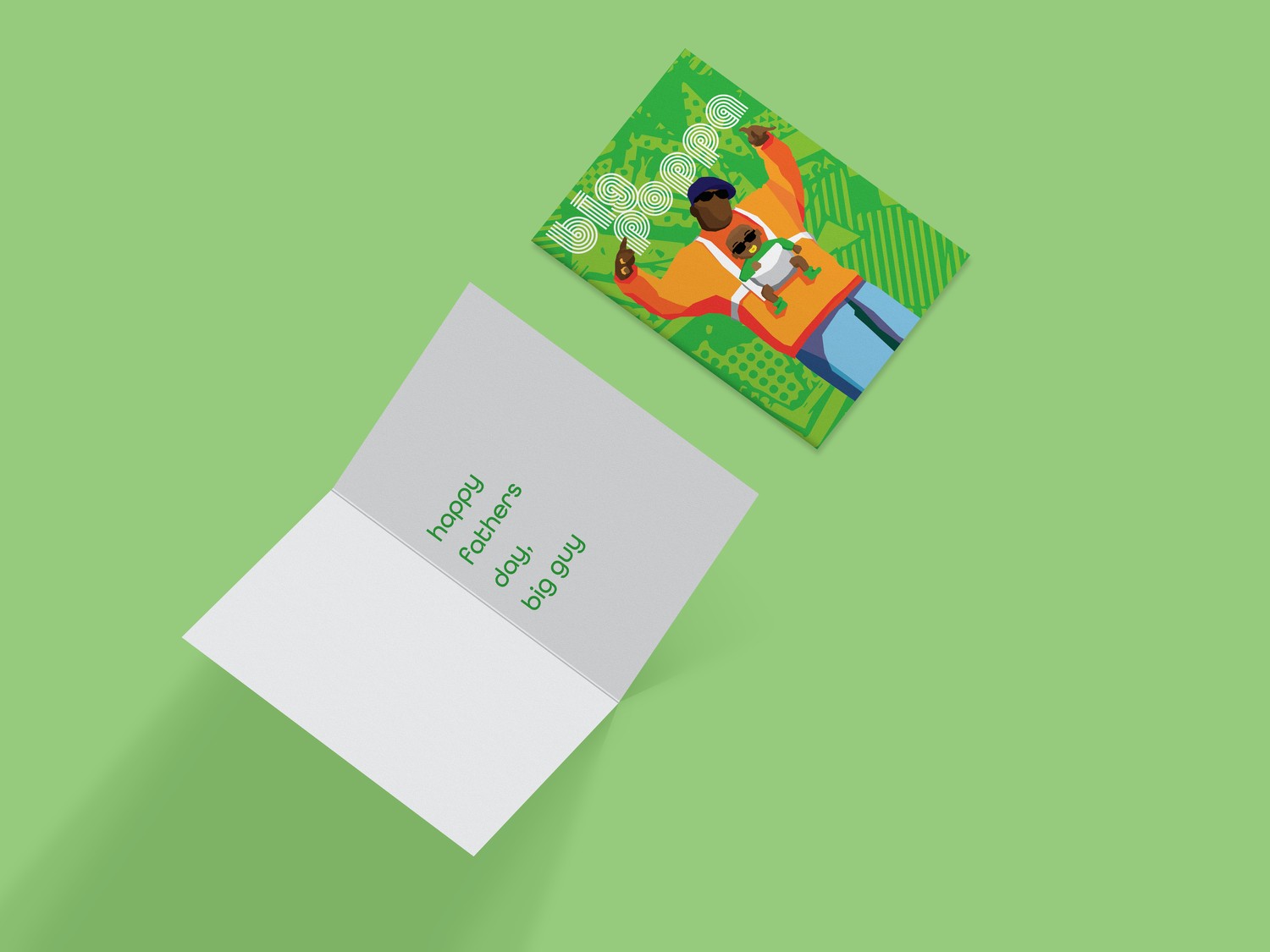
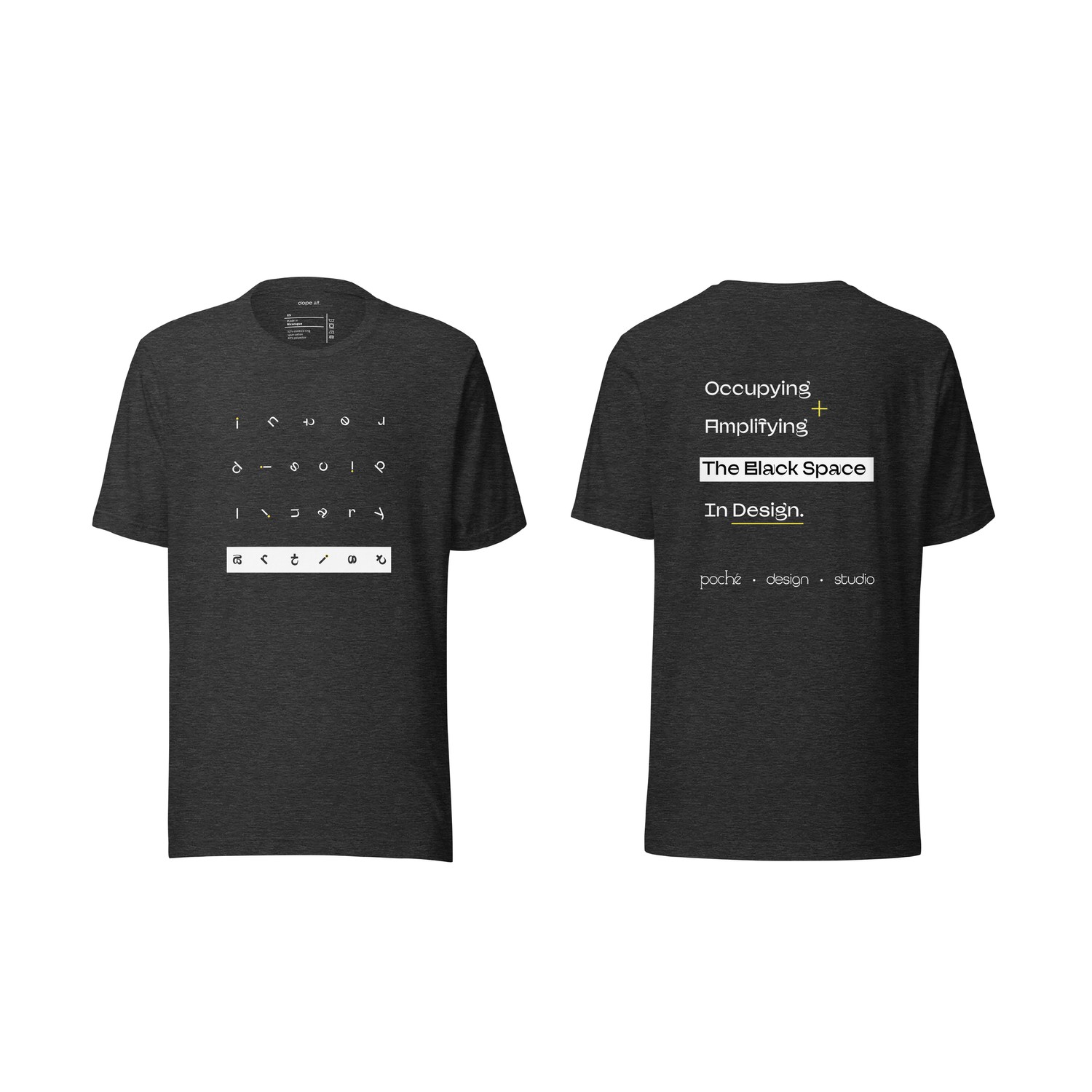
Morgan, love having you share your insights with us. Before we ask you more questions, maybe you can take a moment to introduce yourself to our readers who might have missed our earlier conversations?
my background: I was the kid with bins and baggies of markers and pencils with a stack of art pads in the corner. I had two hot glue guns instead of one because sometimes it took awhile to heat just the one up, so it’s best to have an extra in rotation so I could get to all my DIY projects. Basically, if I could create it, I would be interested in it. Drawing, building, baking, sewing, fashion, poetry, music, dancing, movies – all of it. When I was still a kid I decided to use all of my talents and interests for good and pursue the life of an architect. I’d never met one, I knew nothing really about it, but clearly what I had seen on tv was enough to convince me. Most importantly though, it seemed broad enough that I could maybe do a few different things.
In 2016, I graduated with my first degree in Architecture with a Minor in African, African American studies from Arizona State. My degree combination may at first seem disjointed, but it was one of the first times I noticed how perspective really changes a story. Several times I would learn about the impacts of architecture and design from both an architecture history standpoint as well as a social one. For instance, the story of Levittown is often taught as a model for suburban density post-war. However, my architecture history often skipped right over the parts about the clear racism written into the deeds that kept Black and brown families from homeownership in those same exact communities. I thought that was wild. I was the only Black kid in my architecture class, a position I knew to assume early. So I stayed busy, I did all the things. Found ways to be in studio, and on the yard. I was exhausted and overwhelmed, but I graduated, moved to LA and started my grad program at USC.
My best friend, Tobi Ashiru, and I have this whole story about how we met on the first day of architecture school. Seeing another Black girl in my architecture class sent a joy through me I thought I’d never know. We knew we needed to be friends, and we’ve been locked in ever since. It was the first time someone else knew what I knew and felt how i felt about this whole architecture thing. We love it and all, but there are some obvious pitfalls that was missing from our day to day in education and the profession. We both have the world’s best mentor, Amy Murphy, who encouraged us to use our Blackness with our architecture and to not see it as extraneous but rather integral. Which was a breath of fresh air. So I named my thesis after Beyonce’s Lemonade Album “From Lemons: Robin Hood Gardens” and explored how social implications play into architecture longevity. By the time i was in my career full-time for about 8 months, i knew drawing out laboratory spaces and bathrooms was not how i was about to spend the rest of my life. I texted tobi about this crazy little idea i had, and she was down. Not too much long later, after the chaos of March 2020, we decided it was a great idea to start a business up from the ground. Poché Design Studio has been our continued breathe of fresh air for going on 4 years now this summer. My circle encouraged me to apply for my dream Architecture job at Bestor Architecture, so I really have the best of my favorite design worlds. While I am still exhausted and overwhelmed, I’m so damn happy.
I’m incredibly thankful to feel love for all of the work I presently do. I’m constantly exhausted, and I regularly fail, but I’m doing exactly what I wanted my whole life: to get paid to draw and daydream in different ways. I’ve learned that I enjoy stories more than anything else, and that comes from this love for a changed perspective. There’s this awesomeness that happens at the intersection of culture and creativity and I’m beyond thankful to spend all of my time there. I want to be a storyteller, in as many ways as I can master.
poché from morgan’s perspective:
If you ask Tobi, she’ll say she always knew Pochéwould be on this track. When I tell you I had no idea. After the shell shock of making an LLC and signing official documents over the online notary system (because this is 2020 and the height of Covid was our moment), we had a company that was going to solve all the problems we felt were deficits from the professional world. From years of talking to peers, mentors, and our community of professionals we’re thankful to have the wisdom to know that poché will grow with us because poché is us. We’re thankful that We, the founders, share the exact same core value, but are otherwise quite different. That being said, we knew our different interests always meant we would do lots of things. So we hired a team of women who are better than we are at a lot of different things, we built in flexibility, and have fostered connections with people who support us and our vision. We started making cards and logos. From there, we branched into publications and social media. That grew to books, reports, pitch decks, custom graphics, websites, rebrand services, social media strategy, and a lot more – and this is just our client work. We want to give ourselves space to grow, so while we want to stay rooted as professionals in digital media, we’ll sharpen those skills with technology as it gives us new things. I’m incredibly proud of the work and what it says about us and our clients. I’m thankful for the space we have created for ourselves and our team. We’ve managed to be bold as hell the whole time, and people still love us for it – which is just wild but it’s been reaffirming; the people we work with are about it. Our discovery calls with clients are amazing – intersections between culture, current events, and design is a fun game of exchange. I guess you could call it a dope and curated environment, but before we began this journey, Tobi and I decided to be leaders in ways different from what we most commonly knew, and to treat our people so well. It’s shockingly easy, and Poche has been an environment for growth this entire time because of it. It’s because this environment is so fruitful that we can work with some of the most amazing people as clients, contractors, and consultants. We’re deeply proud of our work because we have always taken the time to understand what story our client wants to tell and how that story should look. We want to tell the best stories, in the best ways, because if you’re going to share yourself with the world, you might as well look badass while you’re doing it. And I’m mostly thankful that people know to come to us for that. A few projects I’d like to highlight are Brightspark Early Learning Services, Be,Do,Become, Soul Flower, Bold Prize,Protagonist Black, and Poche Design Studio ourselves. I think it’s amazing that one of our most popular print’s is of Anegla Davis, made after a frustrating day at a past architecture office. I’m proud that in our artwork there are Black faces in traditional architecture spaces. I’m proud that we are making waves our own way.
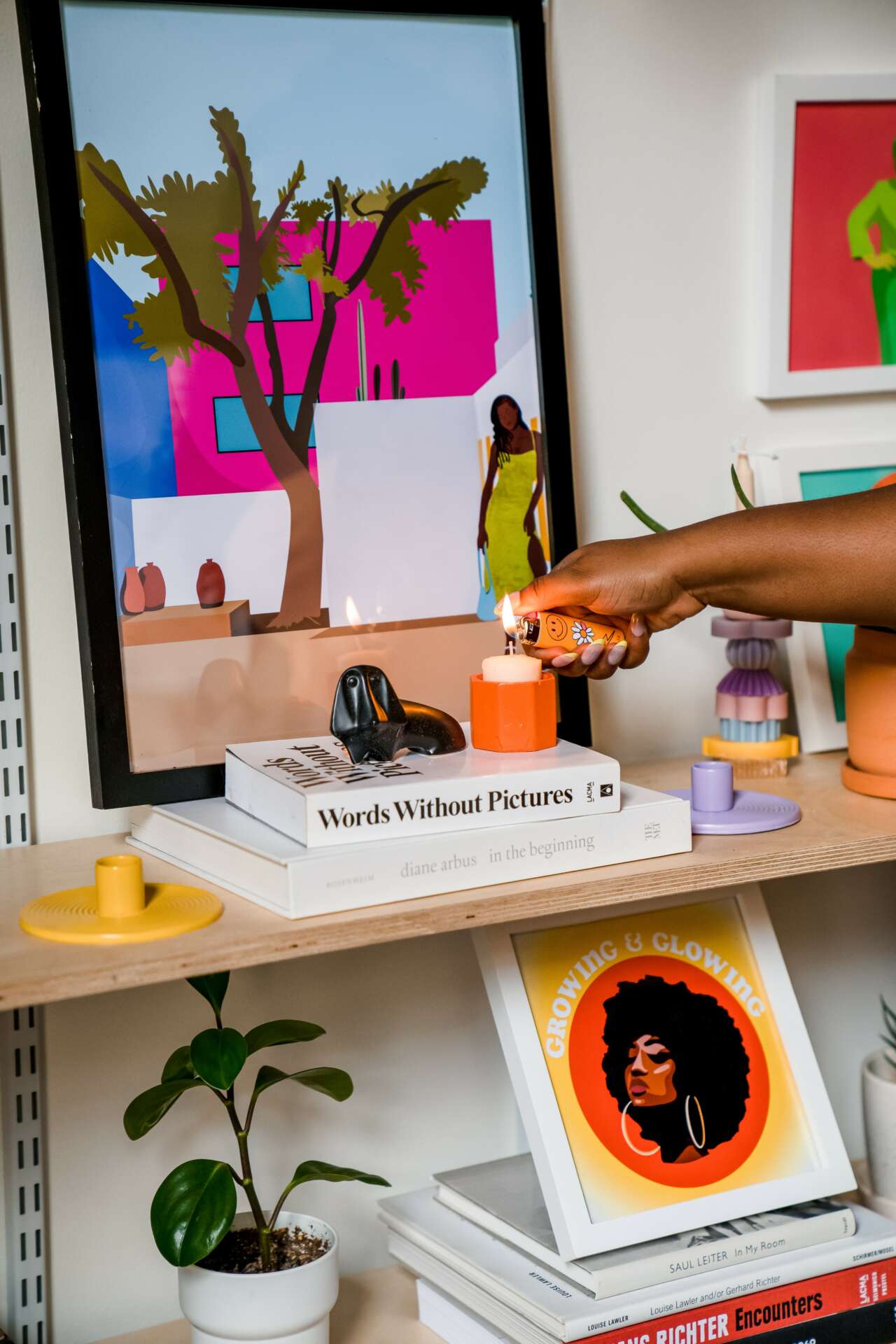


How’d you build such a strong reputation within your market?
We’ve been boldly telling stories for a few years now and I would attribute that to our reputation for consistently showing up as ourselves. Tobi and I believe in just being you, as much as you’re able and comfortable whenever you can. We know what it’s like to have assumptions made about you because of who you are, what you look like, sound like, are from. The thing about us two is, we’re happy regardless of what other people are saying. So between our confident individualisms and general disinterest in approval, we’ve been able to really focus on our goals for impact and reach. We employ the same amount of intention when we talk through concepts and strategy as we do in discussing how to actualize design critique. We welcome our clients to be active in their projects by being included in these conversations. We love to ask a good funky question to get unlikely responses, like if your brand had a pet, what kind of pet would it be? Poché’s pet might be a jet-black unicorn that’s obvious, iconic, and full of double meaning. While I don’t expect absolute perfection in the work we do, I do expect a consistent level of precision and quality, even if it takes reframing and adjusting to get it there. We respect the process and integrate time for proper review and revision. We set a tone early for bold outputs with projects like The Bold Prize and AI For the People and have since kept pace for mission-driven organizations as clients. We recognize that we’re helping them tell their stories and make requests that likely disrupt their respective norms. They’ve entrusted us to tell that story the best, most compelling way, so quality of deliverables and experience is a standard,
A backstory in architecture helps us recognize when we need to put our pride aside and do what’s best for the project. We welcome critique. People hear architecture and pretty quickly recognize our range in skills, so being a design agency that can do it all is something we are increasingly getting recognized for.
We talk about our story a lot, but it’s because our identities are entwined with our experiences. We’re unapologetic as a direct response to constantly being asked to be quiet, conform, and become small. We built Poché as a giant “hell no” to all of that. We’re consistent in the quality of our work, in the depth of our partnerships, and in the kinds of stories we tell because it is directly tied to who we are as individuals. So, we’ll continue to reinforce our values through our partnerships and our projects alike, working with people who align themselves to the “better life, better world” track and understand the impact of quality design.
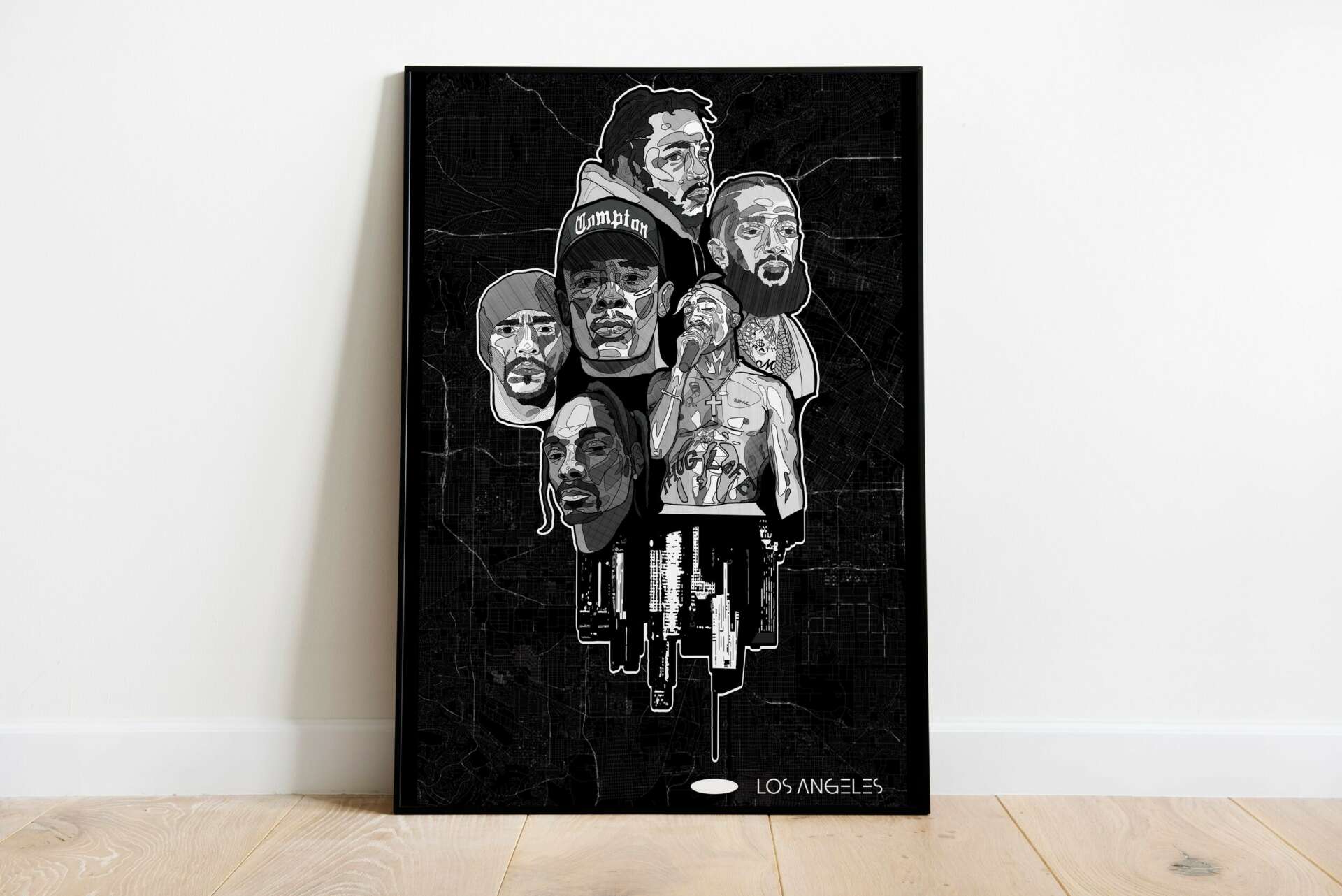
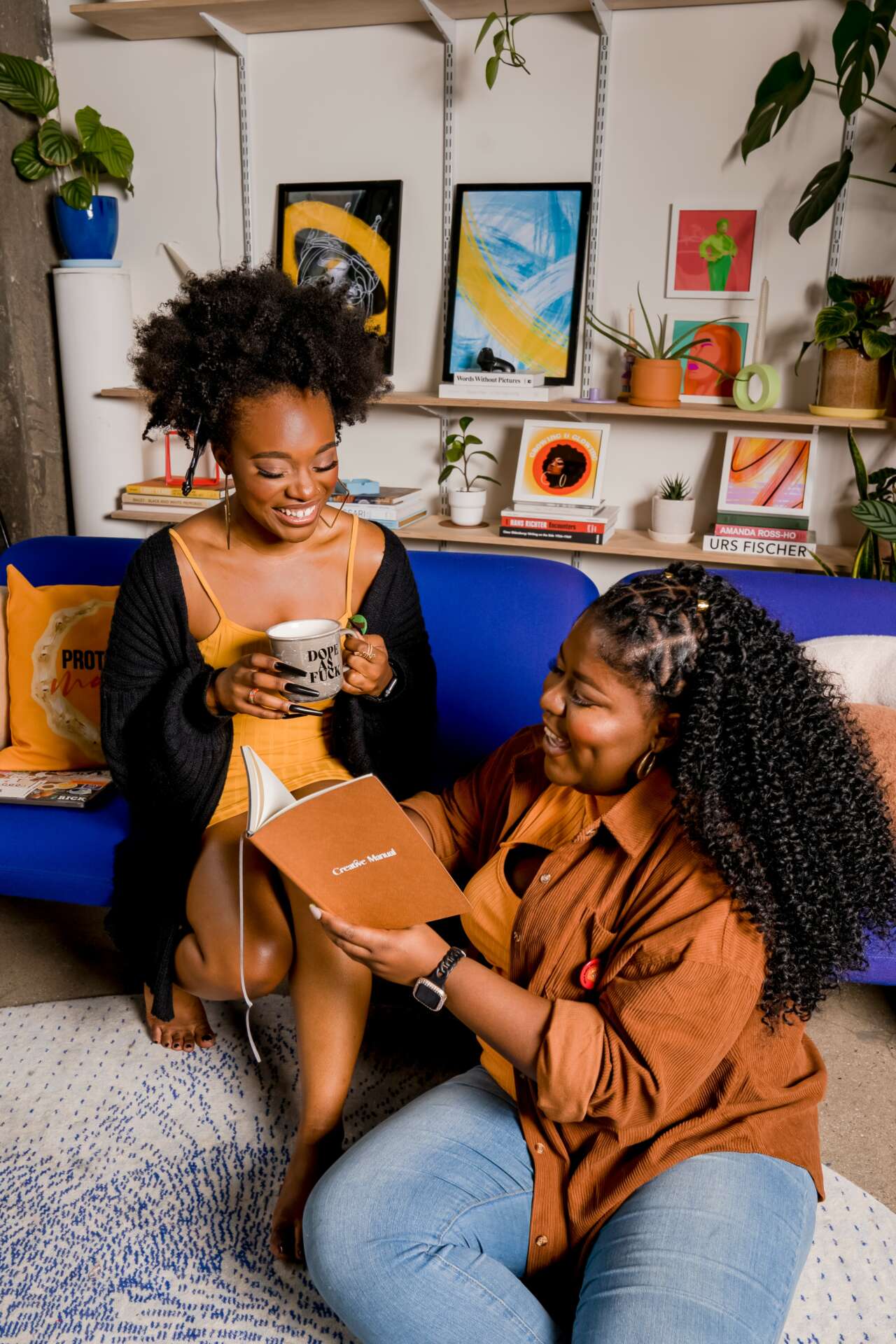
We often hear about learning lessons – but just as important is unlearning lessons. Have you ever had to unlearn a lesson?
As business founders, we’re often humbled by the experience. I always expected entrepreneurship to be challenging, however, I didn’t realize how much we’d really need our community to have capacity to build past inception. For me, learning how to ask for help has been a critical unlearning that’s needed for business success. I was taught how to do things myself, in case no one else was around to help me, my family made sure I was independent. Boy oh boy did those leesons really stick. I had gone too far down this road of independence where I hadn’t learned how to ask for help yet and it showed. I had to reframe “asking for help” as asking for resources, delegating tasks, and acquiring new perspectives. We started saying “someone else can do this better than we can” and that changed everything. Once Tobi and I both started leaning into asking for help, things became easier. We started Poché fresh out of school with no money and no resources, so our had to ask our parents for help in buying us our first big purchases, like our printer, while we operated with the smallest overhead cost. We were less informed about how to financially run a business as our backgrounds are in design, so we signed up for a mentor who has not left our side and teaches us lessons in life and business that has kept the values of Poché foundational. Our mentors have been a safe place to unlearn hyper independence; they have been quick to outcast a closed mouth. When juggling the time to build a business, with our design load, add in outreach, consider our other jobs, we were spread very thin. Because of that, there’s a level of protection we formed around Poché, so asking for help in the form of hiring a team has been one of the biggest lessons. Having other eyes and ears on Poché that understand our values deepens our roots; the lesson was entrusting others with our business can be a good thing. This goes hand in hand with trust – specifically trusting this new person with something i’ve put my blood, sweat, and tears into. We were nervous to hire, and understandably so, but we would not have made it this far without the team we’ve entrusted with our vision. Delegating tasks is an everyday example, as is regularly tapping our network for advice and resources. We’ve learned the importance of community in what we’re doing, so leaving space for other people to advise is part of this as well. The Poche Party is best when lots of people are invited. We’ve realized that sacrificing an ounce of independence is an exercise in trust that ultimately benefits our business in the end.
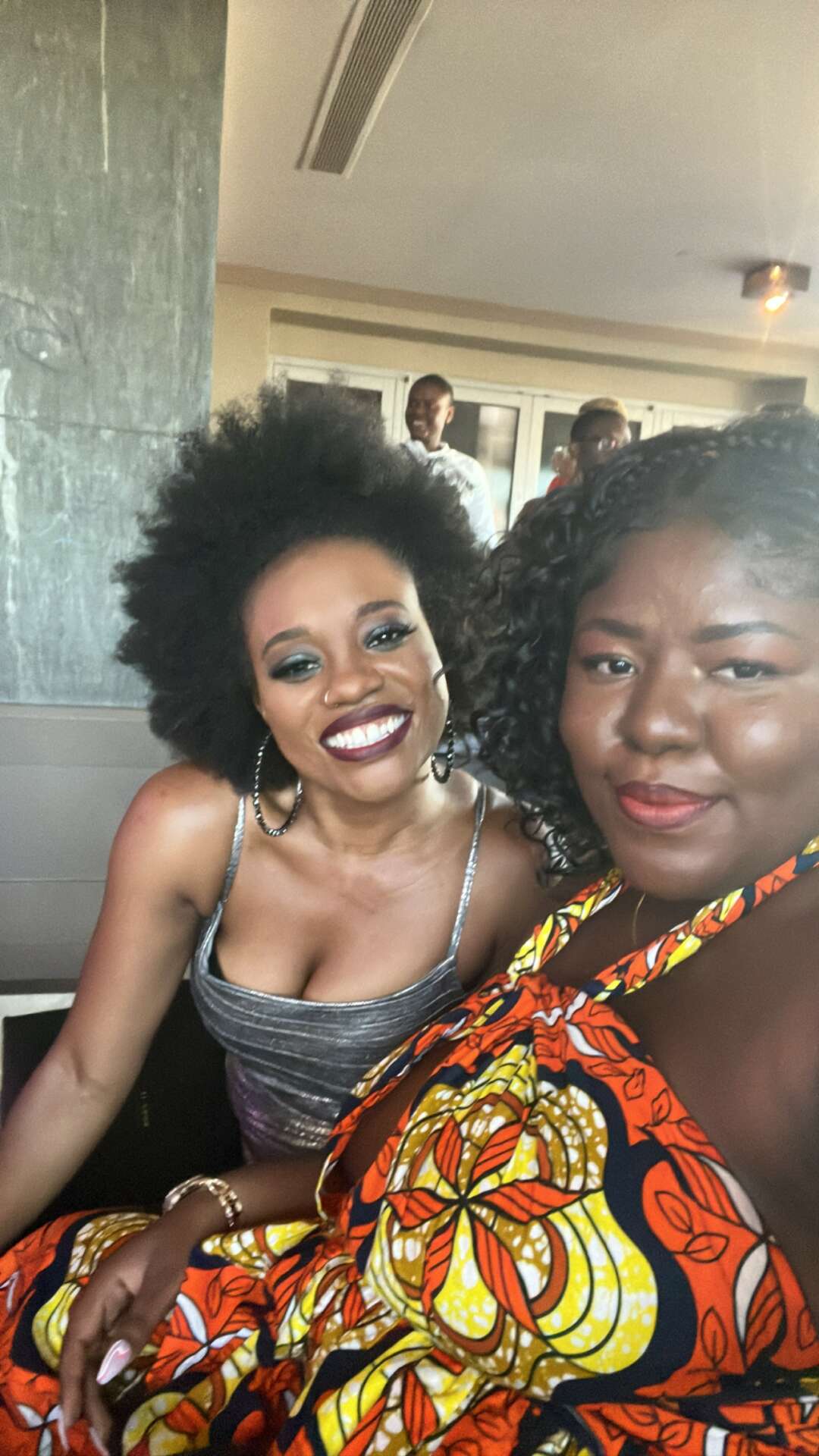
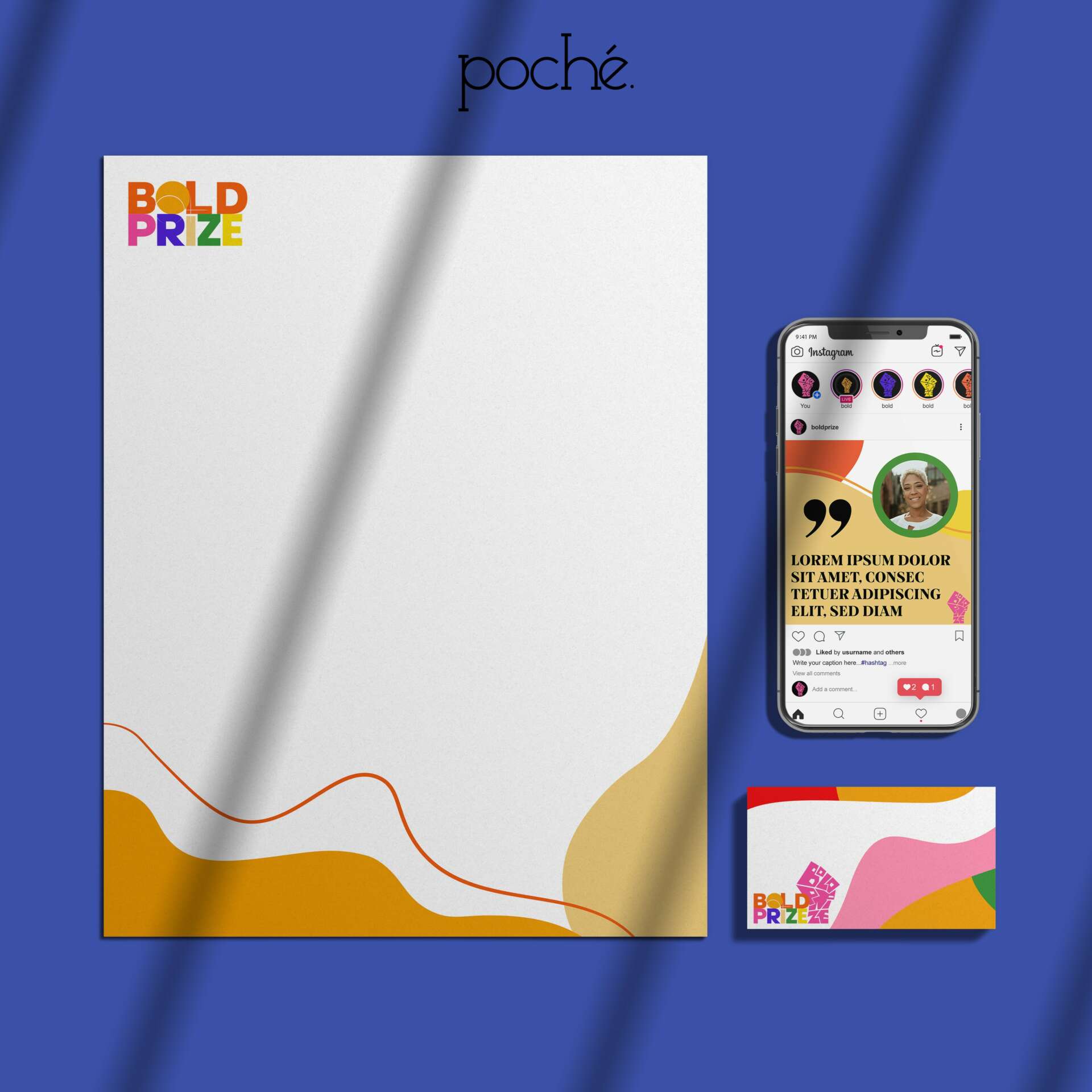
Contact Info:
- Website: bypoche.com
- Instagram: by_poche, morgancamille
- Linkedin: https://www.linkedin.com/company/poche-design-studio, https://www.linkedin.com/in/morgancsumner
- Other: https://www.tiktok.com/@by_poche
Image Credits
Kay McCoy, photos starting in “DSC” https://www.instagram.com/kayemccoy_/?hl=en


